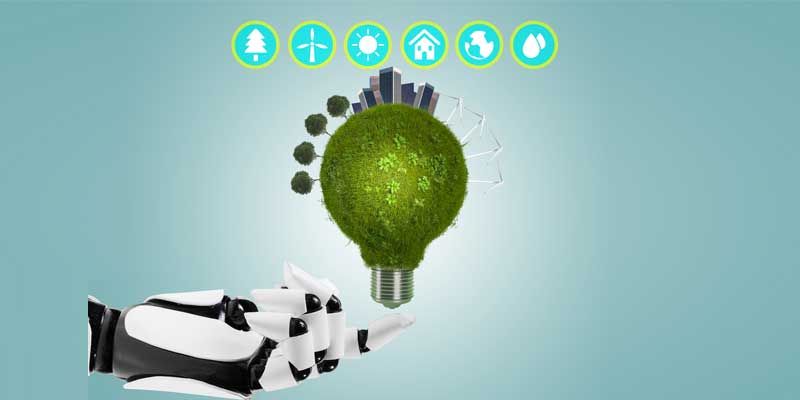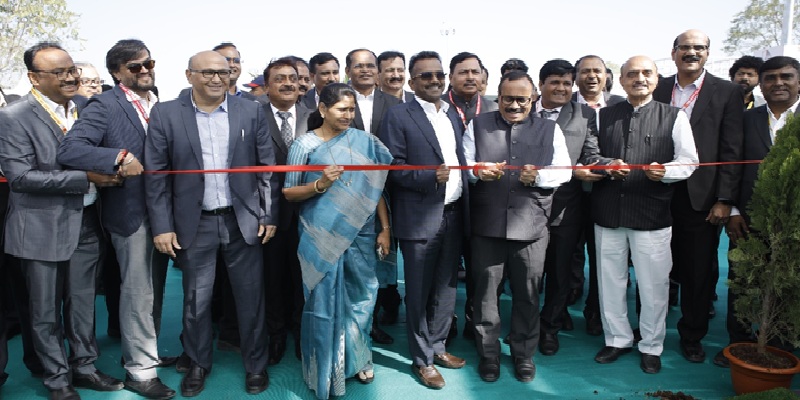Schedule a Call Back
Role of modern technologies & automation in green engineering
 Articles
Articles- Jan 16,24

In a world where 73 per cent of millennials prioritise environmentally conscious businesses, going green is more than a trend—it's an essential shift. Embracing LOHAS (Lifestyles of Health and Sustainability) principles aligns strategically with the values of eco-conscious consumers. Likewise, green engineering involves designing and implementing processes/products that minimise pollution, promote sustainability, and protect human health, all while maintaining economic viability. It's not just a benefit to your business; it contributes to a positive global shift by integrating technological advancements with eco-friendly practices.
Imagine this – “by embracing technologies that benefit both your business and the Earth, you not only appeal to a growing consumer base but also contribute to a positive global shift.”
The current manufacturing landscape
The manufacturing industry is changing dramatically, driven by the dual goals of becoming a global hub and embracing sustainability. Innovation is happening quicker than ever before since the advent of game-changing technologies like digitalisation, robotics, AI, and 3D printing. These technological wonders are more than just terms of the moment; they are the driving force behind resolving centuries-old environmental issues.
As we step into an era where climate change, resource depletion, and pollution are urgent problems, ‘SUSTAINABILITY’ is the talk of the town. And guess who's leading the charge? ENGINEERING! With its arsenal of cutting-edge technologies, engineering is reshaping industries and guiding us toward a greener, more sustainable world.
Challenges in the manufacturing sector
The manufacturing sector, particularly in heavy industries such as power, chemicals, oil and gas, and mining, faces unprecedented challenges amid technological shifts and the imperative to address climate change. The need to reshape traditional business models was evident long before the pandemic, and in the post-pandemic era, this imperative has only intensified. Recently, there has been an announcement of a carbon emission tax on manufacturing, initially affecting industrial materials the most. While this tariff poses challenges, especially for countries majorly producing steel or iron, it also presents an opportunity to curtail emissions, thereby positively impacting the environment. The geopolitical implications of such taxes are particularly felt in developing countries.
Engineers now led the charge, managing time, cost, and reporting with vast amounts of engineering data to drive the energy transition and meet digital transformation needs effectively. Recognising these challenges, it is crucial to understand how emerging technologies can propel us toward a future of 'Green Engineering.' This journey holds the promise of a world where progress and environmental responsibility coexist, meeting the expectations of a generation deeply concerned about the planet. Staying informed about the pertinent trends, technologies, and opportunities is imperative to leverage modern engineering as a force for positive change.
Government vision and global manufacturing hub
The government envisions India as a global manufacturing hub, a powerhouse driving innovation and sustainability. To achieve this ambitious goal, a multi-faceted approach is imperative. This involves creating an ecosystem that fosters innovation, incentivises sustainable practices, and supports the integration of cutting-edge technologies into manufacturing processes. Investment in research and development, collaboration between industries and academia, and the formulation of policies that encourage sustainable practices will be key elements in transforming this vision into reality.
The government's role extends beyond policy formulation; it involves active participation in global initiatives for sustainable development. Collaborating with international partners, sharing best practices, and aligning with global sustainability standards will position India as a responsible global player in the manufacturing landscape.
Sustainable development goals and modern technologies
To achieve sustainable development goals, a comprehensive understanding of modern technologies is crucial. Each technology plays a unique role in reshaping the manufacturing landscape towards sustainability:
Precision manufacturing through robotics minimises material wastage, improves accuracy, and enhances overall efficiency. The use of robots in manufacturing processes reduces environmental impact by streamlining operations and ensuring optimal resource utilisation.
Implementing digital twins
As we look into the intricacies of each technology, it becomes evident that their collective integration is pivotal for achieving sustainable development goals. These technologies are not isolated solutions but interconnected components of a holistic approach towards green engineering.
Employing digital twins involves real-time updates using cloud systems and IoT, ensuring accuracy in heavy industries. Digital twins are virtual replicas of physical entities, like a power plant or refinery, used to streamline planning and execution. This technology tackles challenges of data silos, saving engineers' time, and enhancing decision-making. Amid technology trends and climate change, industries are adopting digital twins to drive energy transition, meet digital transformation needs, and overcome complexities in time, cost management, and reporting. Digital twins are indispensable for maintaining current information, making informed decisions, and refining change management strategies.
Benefits of digital twins for engineers:-
Final thoughts
About the Author
Avi Dahiya is the founder & CEO of Twyn. As a DeepTech futurist and technology evangelist, Dahiya has explored the uncharted territories of technology. His astute insights into evolving technology trends led to the launch of the world’s first Phygital Twin DeepTech enterprise SaaS startup Twyn in 2021, a truly ‘Made in India’ Digital Twin platform to enable Large Manufacturers and OEMs for Smart Manufacturing. He was also recognised as one of the Youngest Business Leaders in the '40 Under 40 Leaders List 2023 by The Times Group.
Related Stories

PCIM Asia New Delhi Conference Debuts, Showcases Power Electronics Future
The inaugural PCIM Asia New Delhi Conference brought global experts, policymakers and industry leaders together to discuss high-efficiency power electronics and India’s evolving energy ecosystem.
Read more
TARIL Reports 32% YoY Revenue Growth, Q3 PAT Rises 37%
Transformers & Rectifiers (India) Limited posts strong Q3 FY26 results, driven by higher revenues, improved margins, healthy order inflows and leadership continuity.
Read more
Toyota Kirloskar Motor Showcases Flex-fuel Hybrid Tech
Toyota Kirloskar Motor highlights flex-fuel strong hybrid technology, skilling initiatives and industry collaboration at the Advantage Maharashtra Expo 2026 in Chhatrapati Sambhajinagar.
Read moreRelated Products

Fanless Industrial Pc for Smart Manufacturing
CONTEC Launches BX-M4600 Series - Fanless Industrial PC for Smart Manufacturing.












